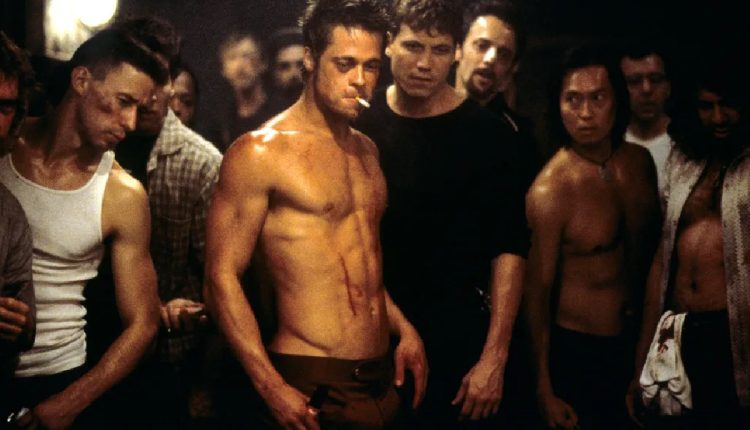“It’s only after we’ve lost everything that we’re free to do anything.”
This line from Fight Club is more than just dialogue — it’s a mantra for every misfit, rebel, and thinker who ever dared to question the modern world. Directed by David Fincher and based on Chuck Palahniuk’s twisted novel, Fight Club isn’t just a film — it’s a cinematic molotov cocktail hurled at society’s pretty little lies.
From the moment you step into the protagonist’s insomniac haze, you’re pulled into a world where consumerism is cancer, and violence is rebirth. This is not your average action flick. It’s a gritty, raw, and philosophical journey into the darkest corners of the male psyche — and it still burns just as bright today as it did in 1999.
Meet the Narrator — A Man Dying Inside
We don’t even get his name.
Our narrator (played with subtle brilliance by Edward Norton) is the poster boy for modern misery — a white-collar drone numbed by IKEA catalogs and sleepless nights. He’s an everyman slowly eroded by the soul-crushing sameness of 9-to-5 life. And when therapy and support groups fail to heal his existential wound, the real story begins.
That’s when Tyler Durden enters.
Enter Tyler Durden — Anarchy in Human Form
Brad Pitt’s Tyler Durden is chaos incarnate — charismatic, shirtless, and savage. He’s what happens when unfiltered masculinity grows wild. He doesn’t sell you soap. He sells you truth wrapped in destruction.
Tyler teaches men to feel something — anything — again. Pain becomes clarity. Bruises become liberation. And Fight Club becomes a church for the disillusioned.
“You are not your job. You are not how much money you have in the bank. You are not the car you drive.”
This speech hits harder than a right hook.
The Club: Not Just About Fighting
Yes, there are fights. Bloody ones. But Fight Club isn’t about violence — it’s about control, rebellion, and reawakening.
The club strips men down — not just physically, but psychologically. It’s raw therapy through destruction. It’s a middle finger to corporations, capitalism, and every commercial that ever told you you’re not good enough unless you buy more stuff.
And when Fight Club evolves into Project Mayhem, the message intensifies. This isn’t just one man’s journey anymore — it’s an ideological war.
Twist That Shook a Generation
You thought you knew what was going on — until the film pulls the rug from under you.
Tyler Durden isn’t just a bad influence. He is the narrator. A figment. A fantasy. The ultimate act of self-denial and freedom. It’s psychological cinema at its boldest.
And suddenly, Fight Club transforms from a gritty cult film into a masterclass in unreliable narration and split identity.
Why Fight Club Still Matters
Over two decades later, Fight Club is more relevant than ever. In a world of influencers, brand obsession, and curated perfection, the film’s raw honesty feels like a slap in the face.
-
It’s a rebellion against the superficial.
-
It’s a cry for authenticity.
-
It’s a warning about losing yourself in a system that doesn’t care about you.
In a time when everything’s about followers and filters, Fight Club asks us to tear it all down — and feel again.
Final Punch: You Don’t Watch Fight Club — You Survive It
Fight Club isn’t for everyone. It offends, challenges, and dismantles. But that’s exactly why it matters.
It’s a film that leaves you shaken, questioning your own reality. It forces you to confront what’s real and what’s not — in the film, and in yourself.
And maybe, just maybe, it inspires you to destroy your comfort zone and start over.
“This is your life, and it’s ending one minute at a time.”
So what are you going to do with it?


Comments are closed.